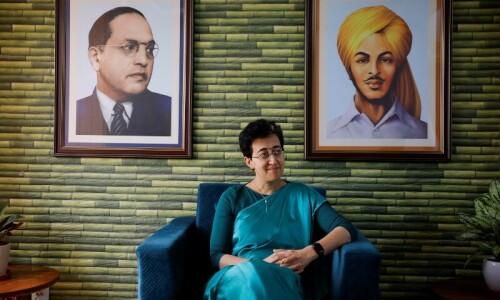WHEN it comes to doing some scientific research with practical application in mind, we lag far behind most of the world. Covid is a new virus and only six countries in the world have been working actively in developing and producing its vaccine. We are not part of that and there is nothing wrong on that count. But what about polio, malaria and influenza which are old diseases? Why haven’t we developed their vaccine to date? Why are we still importing polio drops?
But these questions answer themselves the moment we realise that it took us years to produce an oral rehydration solution of our own. On the other hand, India has a population of 1.39 billion and has far worse poverty than us, but it supplies 14 types of vaccines to the world. Besides, India is also producing two Covid vaccines and millions of its citizens have been vaccinated. Where do we stand? We are still dependent on other countries for vaccines.
We set up the first National Institute of Health (NIH) in 1965 before India did. It was set up for disease research and vaccine development. Have the authorities concerned ever called any of its chairmen and asked why the institute has failed to produce any vaccine? What have they, the chairmen, done so far? Why have they not been able to develop a polio vaccine yet? We have never asked them to invent something, but at least they should be able to produce what has already been invented by other countries.
Our universities churn out thousands of graduates every year. According to the Pakistan Engineering Council, 273,000 engineers passed out in 2018. Thousands of students receive degrees from different institutions, but there is no innovation and invention in the country.
We established the Higher Education Commission (HEC) in 2002 to promote and encourage research in the country. The HEC has been receiving millions in government funds, but cannot name a single top-class researcher produced in the last almost two decades of its existence.
The main reasons behind these issues are outdated curriculum, failure of the HEC, lack of outcome-based education, and lack of effective policies. Our policymakers, regulatory authorities and educational institutions are equally responsible for the miserable academic standards in the country.
There is a dire need for working on our education system so that we may produce real researchers in the country. We should realise that we are giving our young people degrees, not education and knowledge.
Given effective education, proper direction and better opportunities, the young generation may make the country proud in the years to come.
Muhammad Issa Khan
Skardu
Published in Dawn, July 4th, 2021













































Dear visitor, the comments section is undergoing an overhaul and will return soon.